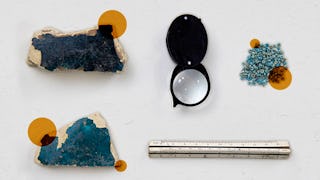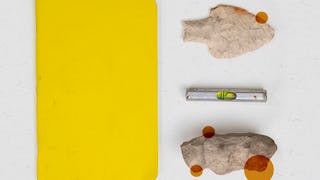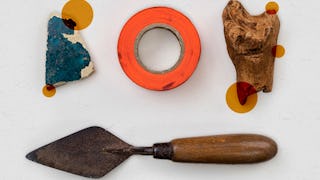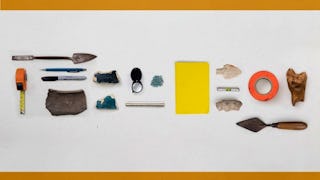This course is the third course in a series on the discipline of Archaeology. It is intended for learners at all stages, including advanced high school, college students, or life-long learners. Basic information about Archaeology and its history are presented in the first introductory course. The second course teaches common scientific methods used in archaeological research. This course focuses on forms of interpretation to reconstruct various aspects of the past through archaeological approaches. The final course covers contemporary social issues that archaeologists engage with.

Enjoy unlimited growth with a year of Coursera Plus for $199 (regularly $399). Save now.

Introduction to Archaeology: Reconstruction of The Past
This course is part of Introduction to Archaeology Specialization

Instructor: Molly Morgan
Included with
Recommended experience
Skills you'll gain
Details to know

Add to your LinkedIn profile
33 assignments
See how employees at top companies are mastering in-demand skills

Build your subject-matter expertise
- Learn new concepts from industry experts
- Gain a foundational understanding of a subject or tool
- Develop job-relevant skills with hands-on projects
- Earn a shareable career certificate

There are 7 modules in this course
Hey there! Ready to dive into the fascinating world of archaeology? 🏺 In this course, we will delve into the delicious details of ancient diets. Ever wondered how archaeologists piece together the identities of people from long ago based on what they ate? Well, get ready to find out! We'll look at how archaeologists reconstruct past people's identities through evidence of the food they ate and explore the transition to food production through the example of early Maize in Mesoamerica. But that's not all! We'll also be delving deep into humanity's origins with Paleoanthropology's help. It's like unlocking the secrets of our ancient ancestors! 🌍
What's included
2 videos4 readings1 plugin
Welcome to "Reconstructing Identity Through the Study of Foodways"! 🍽️ Prepare to embark on a journey where anthropology meets archaeology in a quest to unravel the complex tapestry of human identity. 💬💡 So, how do we dive into the essence of identity through food? 🤔 Well, we'll be delving into the realm of foodways—those shared beliefs and practices surrounding food that shape who we are. Every aspect leaves clues about cultural norms and belonging, from gathering and preparing to eating and disposing of food. Imagine peering into the past and deciphering the stories told by remnants of ancient meals. Through this course, you'll learn how archaeologists use these traces to piece together the identities of different groups. We'll also explore how this approach sheds light on the experiences of communities affected by forced migration and cultural exchange, such as the rich history of the African Diaspora. Get ready to discover hidden narratives and gain a deeper understanding of the world. 🌍✨ So, are you hungry for knowledge? Let's dig in! 🍴📚
What's included
5 videos5 assignments1 peer review1 discussion prompt
Welcome to "Reconstructing Early Maize Farming"! Step back to over 10,000 years ago, when our ancestors lived without grocery stores or farms. They relied on nature's bounty for their daily meals. 🌽🍽️ But how did they transition from hunting and gathering to cultivating crops like maize? 🤔 In this module, we'll explore their journey of agricultural innovation. We'll delve into the motivations behind early farming practices and investigate where and when these pivotal transitions occurred. Through the lens of archaeology and anthropology, we'll uncover the challenges and triumphs of ancient communities as they pioneered the path to food production. 🌾 Join us as we peel back the layers of history and gain insights into humanity's early agricultural endeavors. Get ready to explore the roots of farming and discover how our ancestors shaped the way we eat today. Let's embark on this journey together and unearth the secrets of early maize farming! 🌽🔍✨
What's included
6 videos7 assignments1 peer review1 discussion prompt
Hey there! Have you ever wondered how people survived in ancient times? In the industrialized world, we live in today, our livelihoods are deeply influenced by technological advancements and modern conveniences. 🚜 But if we rewind the clock back thousands of years, we'll discover a vastly different way of life. It's fascinating to think about how our ancestors put food on the table and sustained their communities. If you're curious about their lifestyles, this module is perfect for you! We'll journey through time and explore how humans have adapted various strategies to put food on the table and sustain their communities. From foraging in the wild to cultivating crops and domesticating animals, we'll discover fascinating methods our ancestors used to survive. Join us on a journey through time as we explore the fascinating ways early humans made a living and shaped today's world! 🌍
What's included
6 videos7 assignments1 peer review1 discussion prompt
Hey there! Ready to discover more archaeological adventures? 🏺 In these lectures, we will uncover the secrets of the past by exploring how archaeologists piece together the cultural landscapes of ancient civilizations. We'll explore cutting-edge technology like eye-tracking cameras and dig into cognitive science theories to understand how the Maya viewed their world, especially those mysterious caves that held such significance. So, prepare to open your mind and explore the past in a new way! 🌟
What's included
5 videos5 assignments1 peer review1 discussion prompt
Get ready for a thrilling journey through time as we unravel the secrets of human evolution! 🌍 In this module, we will explore human origins and evolution by studying the Earth's history, including the geological timescale and changes in climate over time. From archaeology to paleontology, we'll explore how ancient clues help us piece together the story of our ancestors. Discover how Earth formed, continents shifted, and life evolved over millions of years. We will also learn about the process of fossilization and how it helps us understand the broader environment in which fossils are found. By the end of this adventure, you'll have a newfound appreciation for the incredible journey that led us to where we are today! 🦴🔍
What's included
7 videos7 assignments1 peer review1 discussion prompt
Thank you for taking the third course in the Introduction to Archaeology specialization. We've learned a lot about how archaeologists interpret the past from the evidence in the archaeological record. We have taken a journey into humanity's origins and the archaeological reconstruction of people's past. The last course in our specialization, Archaeology as Activism, considers ethical obligations for archaeologists and ways to engage in broader social issues through archaeology. We'll also take our study of past environments into a modern context, considering how landscapes are changing today in ways similar to the past and how cultural meaning continues to be inscribed on natural spaces. I hope you join me for the next adventure in the fascinating world of archaeology!
What's included
1 video2 assignments1 peer review
Earn a career certificate
Add this credential to your LinkedIn profile, resume, or CV. Share it on social media and in your performance review.
Instructor

Offered by
Explore more from Governance and Society
 Status: Free Trial
Status: Free TrialRice University
 Status: Free Trial
Status: Free TrialRice University
 Status: Free Trial
Status: Free TrialRice University
 Status: Free Trial
Status: Free TrialRice University
Why people choose Coursera for their career




Frequently asked questions
To access the course materials, assignments and to earn a Certificate, you will need to purchase the Certificate experience when you enroll in a course. You can try a Free Trial instead, or apply for Financial Aid. The course may offer 'Full Course, No Certificate' instead. This option lets you see all course materials, submit required assessments, and get a final grade. This also means that you will not be able to purchase a Certificate experience.
When you enroll in the course, you get access to all of the courses in the Specialization, and you earn a certificate when you complete the work. Your electronic Certificate will be added to your Accomplishments page - from there, you can print your Certificate or add it to your LinkedIn profile.
Yes. In select learning programs, you can apply for financial aid or a scholarship if you can’t afford the enrollment fee. If fin aid or scholarship is available for your learning program selection, you’ll find a link to apply on the description page.
More questions
Financial aid available,





